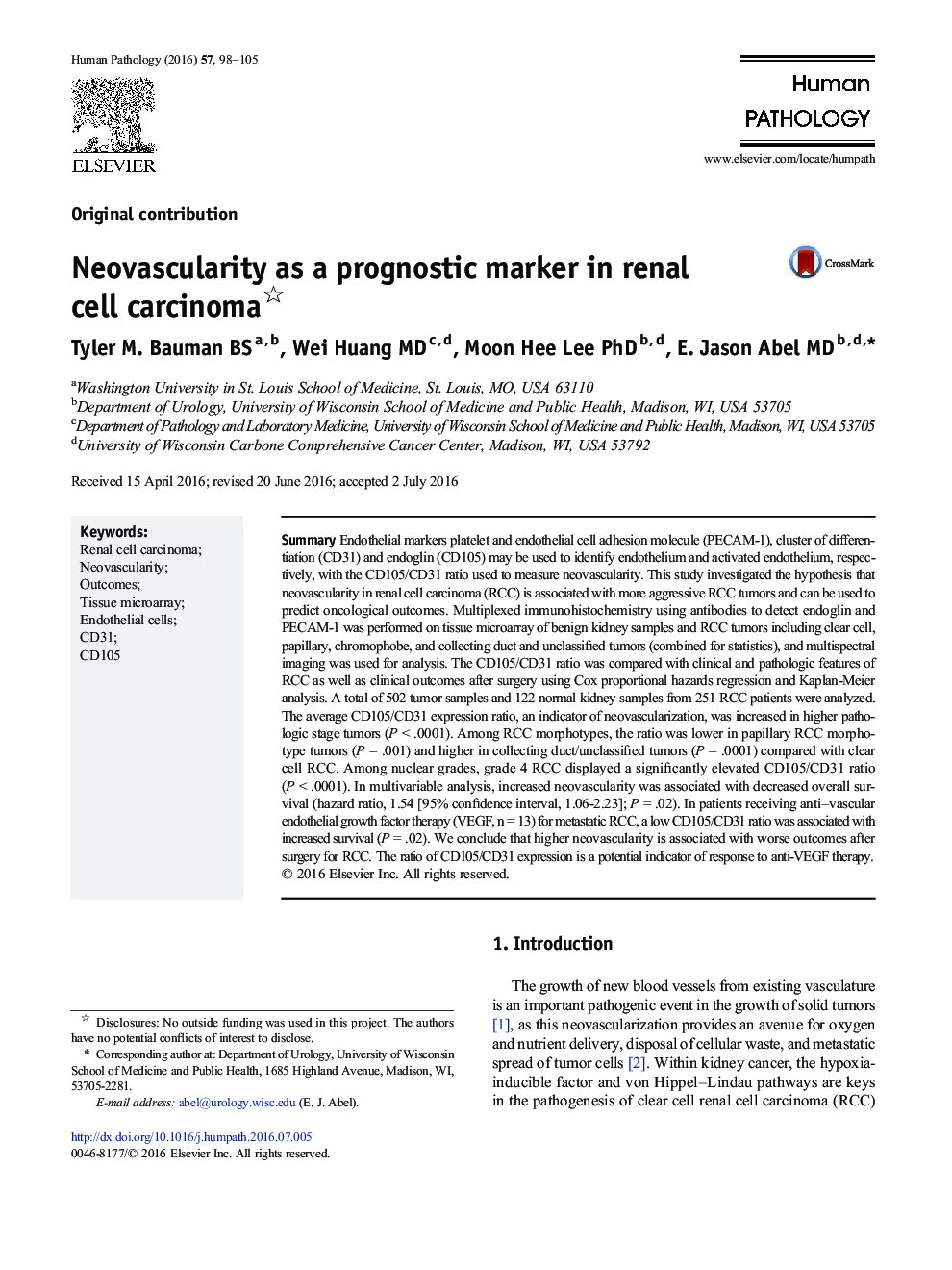| کد مقاله | کد نشریه | سال انتشار | مقاله انگلیسی | نسخه تمام متن |
|---|---|---|---|---|
| 6215354 | 1606653 | 2016 | 8 صفحه PDF | دانلود رایگان |

SummaryEndothelial markers platelet and endothelial cell adhesion molecule (PECAM-1), cluster of differentiation (CD31) and endoglin (CD105) may be used to identify endothelium and activated endothelium, respectively, with the CD105/CD31 ratio used to measure neovascularity. This study investigated the hypothesis that neovascularity in renal cell carcinoma (RCC) is associated with more aggressive RCC tumors and can be used to predict oncological outcomes. Multiplexed immunohistochemistry using antibodies to detect endoglin and PECAM-1 was performed on tissue microarray of benign kidney samples and RCC tumors including clear cell, papillary, chromophobe, and collecting duct and unclassified tumors (combined for statistics), and multispectral imaging was used for analysis. The CD105/CD31 ratio was compared with clinical and pathologic features of RCC as well as clinical outcomes after surgery using Cox proportional hazards regression and Kaplan-Meier analysis. A total of 502 tumor samples and 122 normal kidney samples from 251 RCC patients were analyzed. The average CD105/CD31 expression ratio, an indicator of neovascularization, was increased in higher pathologic stage tumors (PÂ < .0001). Among RCC morphotypes, the ratio was lower in papillary RCC morphotype tumors (PÂ = .001) and higher in collecting duct/unclassified tumors (PÂ = .0001) compared with clear cell RCC. Among nuclear grades, grade 4 RCC displayed a significantly elevated CD105/CD31 ratio (PÂ < .0001). In multivariable analysis, increased neovascularity was associated with decreased overall survival (hazard ratio, 1.54 [95% confidence interval, 1.06-2.23]; PÂ = .02). In patients receiving anti-vascular endothelial growth factor therapy (VEGF, n = 13) for metastatic RCC, a low CD105/CD31 ratio was associated with increased survival (PÂ = .02). We conclude that higher neovascularity is associated with worse outcomes after surgery for RCC. The ratio of CD105/CD31 expression is a potential indicator of response to anti-VEGF therapy.
Journal: Human Pathology - Volume 57, November 2016, Pages 98-105